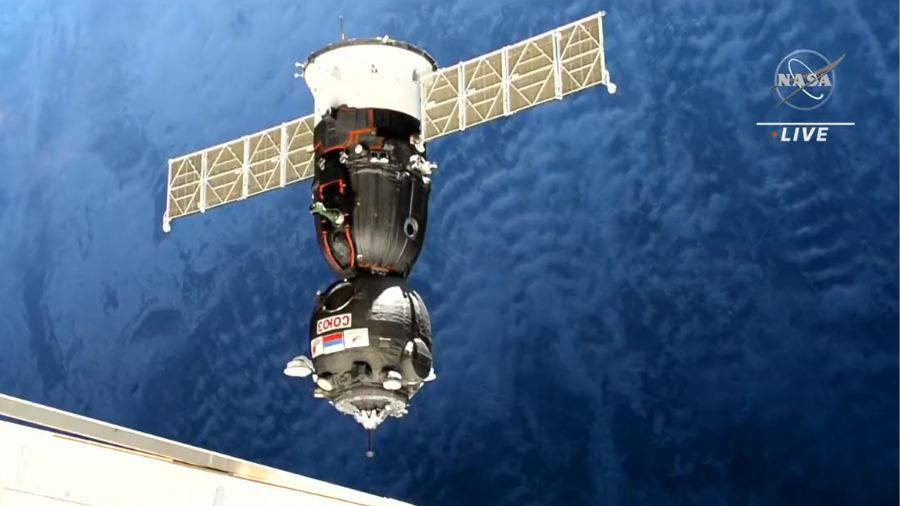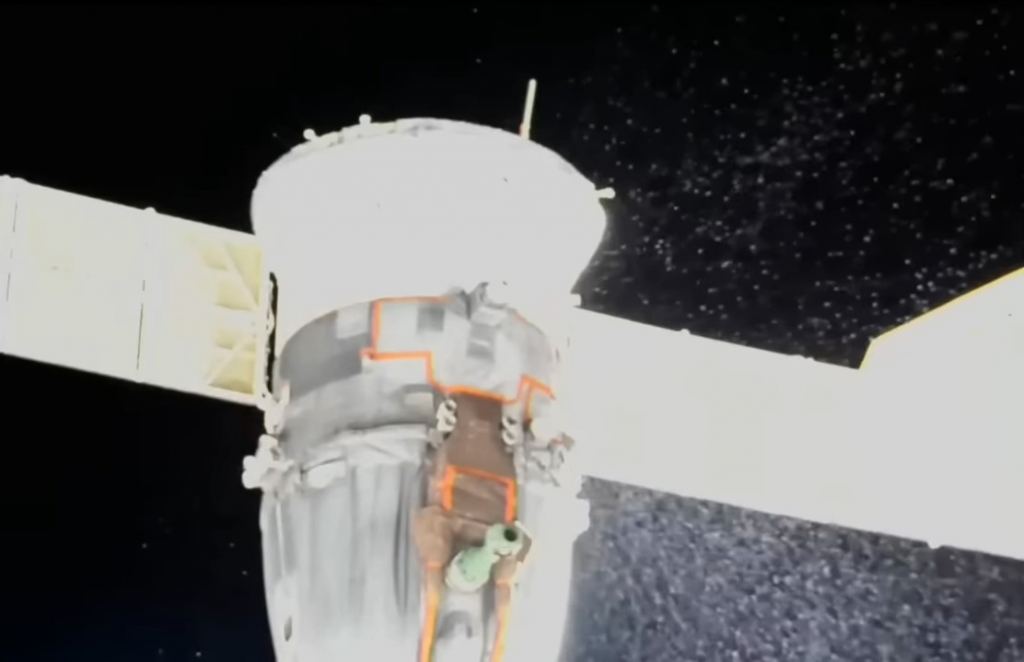The crew of the International Space Station can now breathe a little easier. An uncrewed replacement Soyuz docked safely to the station, meaning NASA astronaut Frank Rubio and Roscosmos cosmonauts Sergey Prokopyev and Dmitri Petelin can make it back home to Earth.
The new Soyuz MS-23 will replace MS-22, which suffered a serious radiator coolant leak on December 14, 2022. After much deliberation, Russian controllers decided that it would be safer to send a replacement Soyuz to the ISS rather than risk the crew returning in a spacecraft without coolant.
Loading tweet...
— View on Twitter
The damaged Soyuz is expected to undock from the station in late March and will attempt an uncrewed landing so Roscosmos can analyze how well an uncooled spacecraft can handle re-entry.
The passengerless Soyuz docked at the station's Poisk module at 7:58 p.m. EST on February 25, after launching on February 23 from the Baikonur Cosmodrome in Kazakhstan. Roscosmos officials said they had determined that the leak resulted from a small hole caused by an impact by a micrometeoroid. The plans to launch a replacement Soyuz were called into question when a Russian Progress cargo ship experienced a similar coolant leak on February 11, but all has gone well so far with the new Soyuz.
"The Russians are continuing to take a very close look at both the Soyuz and the Progress coolant leaks," Dana Weigel, NASA's the space station's deputy manager said during a briefing last week. Weigel added that a commission was formed to assess the anomalies, analyzing potential causes from the time the capsules launched through their stay on orbit.
The new Soyuz arrived just a day and a half before NASA and SpaceX plan to launch the Crew-6 mission to the station. Launch for that mission is slated for early Monday morning, February 27. Crew-6 includes NASA astronauts Stephen Bowen and Warren "Woody" Hoburg as well as Sultan Alneyadi, an astronaut with the United Arab Emirates, and Roscosmos cosmonaut Andrey Fedyaev.
The Crew-5 astronauts currently on board the ISS will return home from their five-month stay on board the SpaceX Crew Dragon capsule. Weigel said that the coolant leaks experienced on the Soyuz and Progress vehicles would not have any impact on the SpaceX missions and that no similar issues were discovered on Crew Dragon vehicles.
However, the leak has affected other crew member rotations. Originally, cosmonauts Oleg Kononenko and Nikolai Chub and NASA astronaut Loral O'Hara were expected to launch to the space station on March 16 aboard MS-23. Instead, Prokopyev, Petelin and Rubio will serve extended time on the space station, perhaps until September. If that timeline holds, the three crewmates will be on orbit for approximately a year instead of the planned six months.
Roscosmos has not yet provided a new timeline for when Kononenko, Chub and O'Hara might launch to the ISS.
You can get the latest update on the ISS at the Space Station blog or at the the ISS's Twitter account.
 Universe Today
Universe Today

